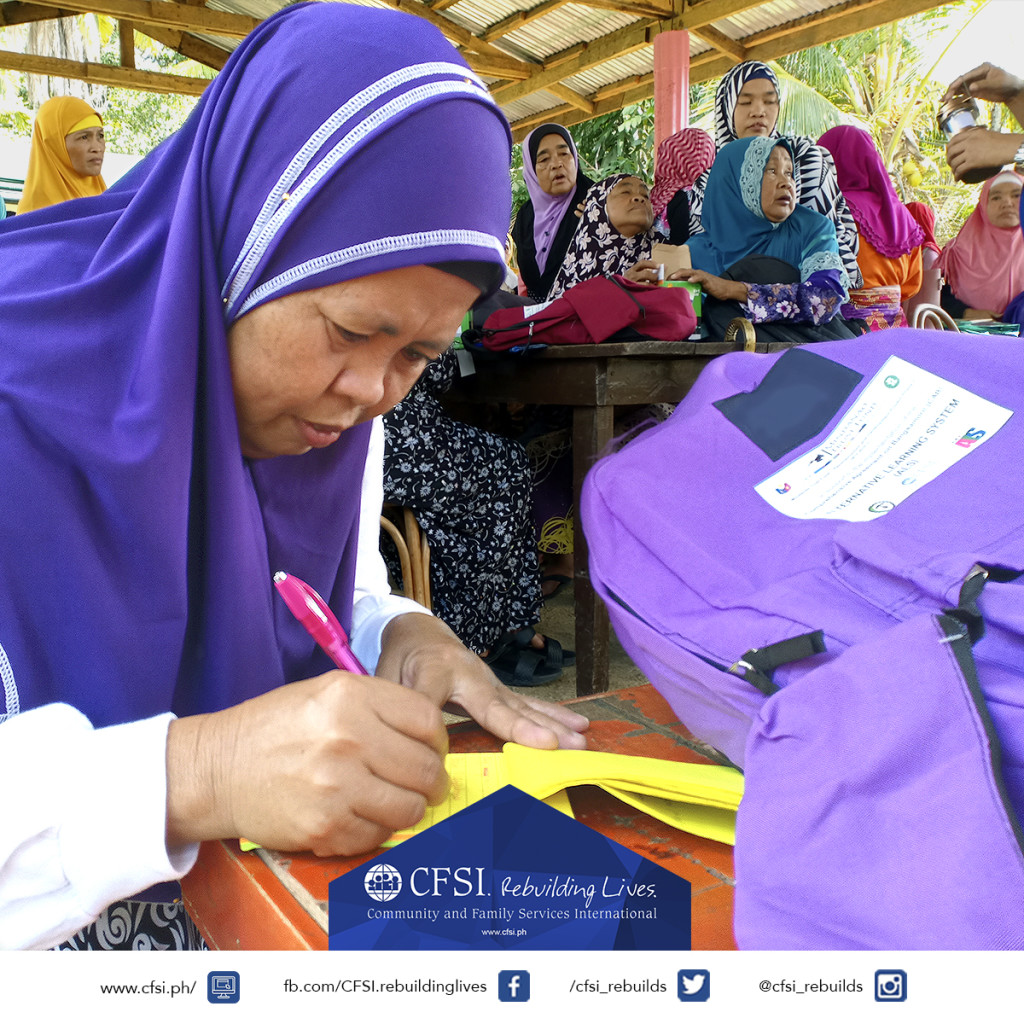It has been a long history of disparity in learning opportunities among Islam men and women. During the early years, most women are prohibited to go to school because of the belief that they should never leave their homes for any reason. They are only expected to fulfil the household obligations.
For this reason, Rocma Abdulraman, 53 years old, only had a limited chance to go to school. “I think I stopped school when I was in grade two,” she remembers.
“Everytime I ask my parents to send me to school again, they always scold me,” Rocma said as she tries to control back her tears. However, she promised herself that when she is old enough and able, she will give herself the benefit of education.
But life seems like a roller coaster ride for Rocma when as early as 15 years old, her parents forced her to marry. “I cannot do anything about it. If I will ignore them, they will disown me.”
She gets older year by year, but was not given the opportunity to acquire another proper education.
A new door opens
It was just last year when Rocma learned about the Alternative Learning System (ALS). She was hesitant at first because it is a little bit unusual for her age. But coming on the first day of class made her realize that age is not a question if you are willing to learn.
Rocma regularly attends Basic Literacy Program under the ALS together with the other enrollees from Barangay Wago, Lumbayanague, Lanao del Sur. Fortunately, her husband, a farmer, is very supportive in her new endeavor.
“It feels so good that I can finally write my full name,” she said. “I can now gradually distinguish letters and numbers,” she furthered.
To date, Rocma is just one of the 1, 884 learners of the ALS throughout the communities of the six (6) previously acknowledged camps of the Moro Islamic Liberation Front (MILF) such as Camp Abubakar as-Siddique, Camp Badre, Camp Bilal, Camp Bushra, Camp Omar and Camp Rajamuda.
The Camps are the identified areas of the Mindanao Trust Fund- Reconstruction and Development Project Phase II (MTF-RDP/2). The MTF-RDP/2 is implemented through a project partnership agreement Bangsamoro Development Agency (BDA) and the Community and Family Services International (CFSI).
The ALS is one of the sub-components of the project which aims to provide education needs of vulnerable groups, particularly out of school youth, women, orphans and indigenous people.
The MTF-RDP/2 implementation is in accordance with the 2014 Comprehensive Agreement on Bangsamoro (CAB). Its objective is to empower communities in targeted conflict-affected areas to achieve improved access to basic socio-economic infrastructures and alternative learning systems.
The Mindanao Trust Fund (MTF) supports the program with the donors such as the European Union, the government of Sweden, Australia, Canada, United States, New Zealand and the World Bank. The World Bank also functions as Trust Fund Administrator and Secretariat.
In support to the objectives of the MTF-RDP/2, the Spanish Agency for International Development Cooperation (AECID) provided complementary assistance directly to CFSI through the project referred to as “Supporting Access to Basic Services and Building Institutional Capacity in Conflict Affected Areas in Mindanao.”


